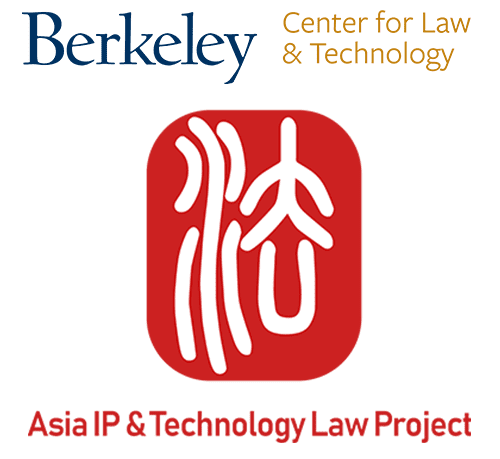Summer-Fall 2021
Online
In recent years China has become a major jurisdiction for standard essential patent (“SEP”) licensing and litigation. A variety of key issues emerge in the process. Overall, certain consensus seems to have been formed between Chinese SEP jurisprudence and its counterparts in other major jurisdictions, such as the cautiously conditioned availability of injunctive relief, a more balanced approach of FRAND interpretation in principle, and the rough compliance with the HW v. ZTE framework in conducting a procedural FRAND scrutiny of the licensing process. On the other hand, challenges ensue in several aspects, including a lack of consensus in optimal FRAND methodologies, the role of antitrust in resolution of FRAND-related matters, how to harmonize global enforcement and deal with the rapidly escalating jurisdictional competition. In addition, new questions keep emerging with the 5G / Internet of Things (“IoT”) era dawning on us. Our success or failure in addressing these challenging discrepancies, will significantly impact the future development of global ICT / IoT industries.
In 2021, the Asia IP and Technology Law Project will host a four-part webinar series, which aims to facilitate in-depth conversations to address the underlying pervasive issues fueling these key challenges. Hopefully, these conversations can also serve as part of the basis to building more consensus and cooperation into the landscape of international SEP jurisprudence. The series will be moderated by Dr. Yuan Hao, BCLT.
This webinar is free of charge. Each session will last 75-90 minutes. CLE credit will be offered.
SERIES SCHEDULE
Talk I – FRAND Methodologies
May 27, 2021
5:00 P.M. (PT)
75 minutes
Resources
Biographies
Recording
Among the issues to be discussed: what are the recent developments of FRAND methodologies in China? What are the economical, political and jurisprudential rationalities behind these methodologies? What are the potential consequences? How can recent empirical research on the royalty stacking theory inform the Chinese courts of optimal FRAND methodology? How would those practical difficulties in existence, such as the lack of adequate discovery and parties’ failure to provide sensitive materials (for example comparable licenses), affect the various Chinese courts’ willingness to adopt the optimal methodology? Should a Chinese court decide a global portfolio licensing royalty absent both parties’ consents?
- Fei Deng, Charles River Associates
- Prof. Alexander Galetovic, Hoover Institution
- Prof. Robert Merges, Berkeley Law
- Hongbin Zhang, Lexfield Law Office
Talk II – Concurrent Litigation and Jurisdictional Competition
Monday, August 30, 2021
4:30 – 6:00 P.M. (PT)
Resources
Biographies
Recording
Responses in Chinese:
15:35 – 25:32
35:34 – 41:38
01:06:38 – 01:12:25
01:21:46 – 01:24:53
Among the issues to be discussed: What are the current developments of Anti-suit injunctions? What are the likely negative consequences in the ICT/IoT industries? What should we do to prevent this rapidly growing jurisdictional competition from escalating into international judicial hostility? What likely cooperation mechanisms can we build at this critical moment to discourage this overzealous competition? How significant a role can arbitration play?
Panelists:
- Prof Vivienne Bath, University of Sydney
- Prof. Mark Cohen, Berkeley Law
- Judge Andrew Guilford (ret.)
- Chief Judge Song Jian, Jiangsu High Court (ret.)
- Shan Jiao, Lifang & Partners
- David Kappos, Cravath Swaine & Moore LLP
Talk III – The Role of Antitrust
October 15, 2021
4:30 P.M. (PT)
90 minutes
Virtual event
Resources
Recording
Among the issues to be discussed: What are the legal provisions under Chinese Antimonopoly Law (“AML”) that may be used to regulate SEP licensing? What are the legislation history and political economy dynamics behind these provisions? How likely will these provisions be misused? The empirical research testing the underlying patent hold-up and royalty stacking theory – how does the outcome inform the AML enforcement in China? The decades long domestic debate between industry policy and competition policy – how did this influence the AML enforcement?
- ZHAO Ye – Partner / litigation attorney at Jing Tian Gong Cheng Law Firm
- Prof. Jonathan Barnett – Gould School of Law at USC
- Prof. Jorge Contreras – University of Utah School of Law
- Stuart Chemtob – Senior Of Counsel at WSGR (Wilson Sonsini Goodrich & Rosati)
Talk IV – The 5G+ / IoT Challenges
December 14
4:30 P.M. (PT)
Virtual event
100 minutes
Resources
Biographies
Recording
Among the issues to be discussed: Will the sheer number of 5G SEPs and complex commercialization models affect our understanding of optimal FRAND methodologies? If so, how? How would the ND prong of FRAND commitment be interpreted in China? What are its implications in 5G SEP licensing? What is/are the most efficient level(s) of the 5G supply chain for SEP licenses? Will patent pools play a larger role? Should this/these level(s) differ depending on the specific industrial sector or one size fits all? How much weight should we give to the established norm in the traditional SEP arena – ICT sector? How much weight to the norm in the diversified “new player” sectors?
- Tom Chia, VIA Licensing
- Robert Earle, Ericsson
- Raymond Millien, Harness IP
- Philip Rogers, Georgetown University
- Paul Zeineddin, Axinn, Veltrop & Harkrider LLP
- Judge SU Zhifu (ret.), Beijing High People’s Court
If you require an accommodation for effective communication (ASL interpreting/CART captioning, alternative media formats, etc.) to fully participate in this event, please contact Nathalie Coletta at natcoletta@berkeley.edu or 510-643-5518 with as much advance notice as possible and at least 7-10 business days in advance of the event.